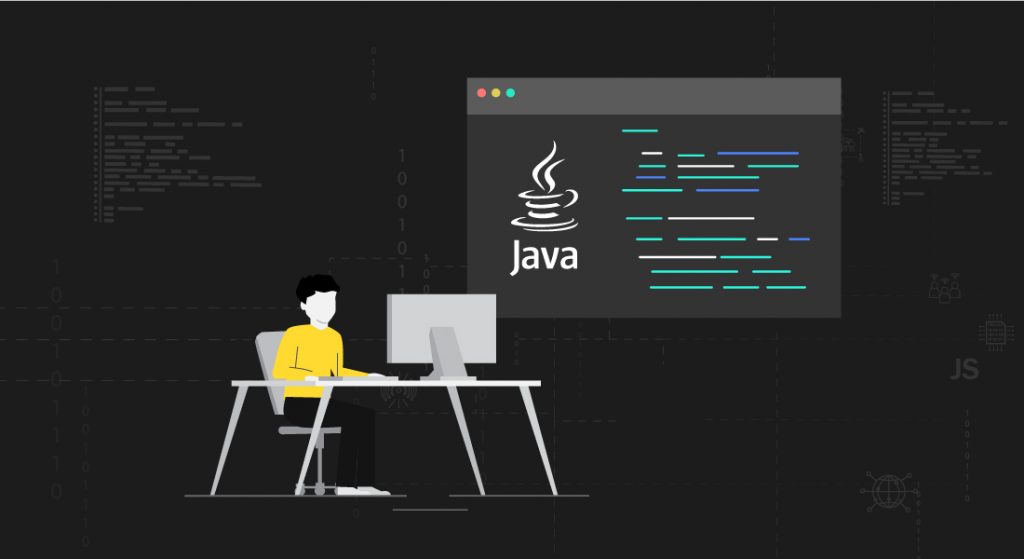6 Step Checklist to Follow for Java Developer Recruitment [Smart Guide to Hiring]
- Aayush Gupta
- April 19, 2022
- 10 Minute Read
![6 Step Checklist to Follow for Java Developer Recruitment [Smart Guide to Hiring]](https://www.uplers.com/wp-content/uploads/2022/04/6-Step-Checklist-to-Follow-When-Hiring-891x505.jpg)
When you’re on the lookout for a good employee, it can seem like a never-ending search. Especially when Java developer recruitment is taken into account, there is a lot of demand for highly-skilled employees around the world.
The robust, agile, and secure programming language of Java makes it the top choice for businesses. Hence, Java developers are among the 2nd highest in-demand professionals in 2022.
While hiring Java developers, you need to make sure that you hire someone who is technically sound, great with communication, and knows what they’re doing.
But, where will you find such candidates? The demand for these types of niche skills is extremely high, but there aren’t enough candidates for the job.
Especially when you are restricting your search to a specific city or even a country, you’ll notice that you’ll have to choose from a very limited pool of candidates. In the United States itself, the NYC talent ecosystem sees a huge deficit of talent.

Despite being the second-largest talent pool in the country, NYC is still far behind Silicon Valley when it comes to attracting top tech workers. This situation makes it hard to keep up with evolving tech requirements and vacancies in big companies and startups.
To make sure candidates prefer your company over your competitors, you must try to establish a competitive edge and come up with smart hiring strategies. However, we know this is easier said than done.
We understand your struggle and so have custom-curated a few methods to adapt during Java developer recruitment.
This blog will be your handy guide with a real-time checklist for making mindful decisions with your next hire. This checklist is created based on the pain points of recruiters and backed by credible data to help you with your recruitment struggle and beat the skill gap. We want the right employer to find the right skill, so both are in a win-win position.
But before we move on to the checklist, let us first understand a few basics about Java.
What Is Java?
Java is a high-level, object-oriented programming language first released in 1995 by Sun Microsystems. It is similar in syntax to C++ and enabled with the “write once, run anywhere” structure. It has evolved to become the power behind the majority of software programs in the world.
An Oracle study says that Java is currently the number one programming language in the world, used more than any other programming language in organizations. There are more than 25 billion active cloud Java virtual machines at present.

Java is the language of choice for mobile apps and large-scale enterprise systems. This is why Java programmers are always in high demand and businesses are facing an increasing requirement for skilled developers to helm successful projects.
Java Development: Outsourcing Projects Vs. Hiring Java Developers
While contemplating Java developer recruitment, you may be torn between the ideas of outsourcing a project and hiring a Java developer. The best choice or route for your business will always depend on your top priorities and goals.

While both the options have their own advantages and disadvantages, often the smart way is to hire remote Java developers.
Why hire remote Java developers? Because:
- Hiring java developers remotely can be a great way to find qualified candidates without having to pay a premium. It also widens up the pool of candidates available in the market by eliminating geographical barriers.
- By having your own talent for Java development needs, you can save on costs while still getting high-quality work.
- Having a developer in your team helps with better coordination and gets you high-end custom IT solutions, as compared to outsourcing work on a project-to-project basis where tasks will be executed by shared resources.
- Hiring remote Java developers help you in long-term project execution and also enables complete control, as compared to outsourcing projects.
However, hiring remotely comes with its own risks. When looking for a remote Java developer, you must evaluate and assess their skills and experience efficiently. Alternatively, there are Java developer recruitment agencies that can help you find the right fit while ensuring a risk-free onboarding.
Pick a way that works best for your business requirements and long-term goals.
[PS: Well! We have reached halfway to the blog and already covered the basics. Let us now jump back to the prime topic – the 6-step checklist for Java developer recruitment. Keep reading!]
The 6 Step Checklist for Java Developer Recruitment
As with any important task, preparing a checklist never goes wrong when you are aiming to achieve a high success rate. This 6 step checklist to hire Java developers covers all the aspects that recruiters must take into account while making a hiring decision.
If you follow these points carefully, you will not go wrong in finding the talent that can uplift your development project without creating setbacks for your company.
1. Document Your Skill Requirement Profile (Map It With Your Java Development Needs)
The first step towards finding the right hire is to document your skill requirement correctly. You need to exactly know what you need or looking for to practically get into the market for the hunt. Your JD should clearly define the specific skills and experience areas required to excel at the position.
Providing a clear and to-the-point JD helps in not only finding the best talent but also retaining them longer. Other information important here includes company and team details, work scope and expectations, other specific requirements, etc.
For instance, your JD must cover aspects such as the following. Do you need someone who can build desktop applications, or mobile apps? Does your Java developer need experience with a specific stage of development?
A clear and concise JD with skill-mapped requirements for the profile is key to making the right hiring decision. It helps ensure that you are targeting the right candidates and reduces the number of candidates who are not a good fit for the role.
It’s also important to define your budget before you start looking for a Java developer. You don’t want to waste time interviewing candidates who are out of your price range.
You should have a clear idea about what the job description entails, so that you can use this format for further recruitment. Having a ready document with these valid points is beneficial for both the recruiter and the applicant.
Its absence can cause problems such as wrong hires, low retention rates, lack of productivity, etc.
2. Prioritize Skills-First Hiring

The skills-first approach towards hiring focuses on the capabilities, skills, experiences, and competencies of an applicant, as opposed to their formal education or number of years in a given field.
For instance, if an applicant has an unrelated graduation degree but has worked extensively in your area of requirement, they deserve a chance to be evaluated further.
A skills-driven hiring approach means you, as the recruiter, should do much more than just outlining the qualifications required and reading CVs in an old-fashioned way. You must change talent acquisition practices to take the real-world skills of the applicant into account.
With a skills-first approach, organizations can identify candidates with a higher level of agility, performance metrics, and out-of-the-box thinking. It also helps to create an inclusive environment and diverse workforce.
Especially for a field like Java development, what matters more than a theoretical degree is a person’s experience with the platform and their insights into potential roadblocks and how to overcome them.
Every tech job goes through constant evolutions, with new tools and applications being developed every day. An ideal developer is one who can keep up with these advancements by refreshing their knowledge and adding other workplace requirements like social and emotional skills.
But to identify a candidate who possesses all these, companies must first have clarity on the skill set they need for a particular profile and what to look for, to make their team more efficient.
3. Right Matchmaking Is the Core to Right Hiring
Remember, right matchmaking is the core to right hiring. Your sourcing partners or Java developer recruitment agencies must be specific about matching the right skills with your requirements to avoid untimely resignations, employer dissatisfaction, error-oriented execution, and so on.

Whether you are hiring in the traditional way, sourcing talent through an external agency, or using top talent marketplaces like Toptal and Uplers, it is imperative to perform the right matchmaking.
To ensure you hire the right candidate, you must prepare a list of questions that will help you know the candidate better and also works self-explanatory for your sourcing partners. Make sure that these questions are framed in a way to expose the candidate’s proficiency with Java, their overall attitude, and communication skills.
A screening questionnaire can help you weed out candidates who aren’t a good fit for the job. It should include questions about experience, skills, and availability.
For example:
- What is your experience with Java software development?
- Do you have any work portfolios for us to refer?
- What are the most important skills for a Java developer to work on any project type?
- What are your availability parameters to work?
- Will you need any training while working remotely?
Hiring someone without cross-checking these aspects can lead to major blunders. If your chosen candidate’s skill profile does not match completely with your requirements, it can cause hurdles for your project and even derail it. Other cons include:
- Lowered productivity
- Loss of clients
- Negative brand reputation
- Damage to employer reputation
- Attitude problems in the team
- Loss of precious developmental time
- Huge recruitment costs
In addition to the company’s losses, there are losses involved for the employee as well. Research suggests that 72% of employees regretted joining a job as the company or profile wasn’t what they had expected. With the right skills-based approach at the get-go, this can be avoided.
4. Ditch Traditional Sourcing and Adapt to New Era Hiring
In the present world, traditional sourcing techniques have been replaced by top talent networks and marketplaces. You can use an online talent network board or Java developer recruitment agency that specializes in sourcing remote talent.
These networks and agencies help you find the best candidate from the top talent pool in the market and follow ways to ensure that you get the ideal match. They conduct extensive screening by reviewing tons of applications and conducting background checks. This benefits in the following ways:
- You can hence avoid the long process of perusing CVs and shortlisting candidates.
- You find the right match with minimal effort and expenditure.
- You get access to top talents without having to do the groundwork or talent research.
- You get to harness the benefits of digital hiring, which is conducive to the post-pandemic world of today.

At Uplers Talent Solutions, we make sure that the candidates go through various aptitude evaluations and language tests to determine their eligibility. Once they clear the technical assessment round, they are interviewed by one of our experts to qualify among the top 3.5% talent pool of India.
Most of the talent networks have similar assessment processes of shorting the top talents. By adapting to this new era hiring process, you can up your recruiting game and be ahead of the curve.
[PS: Now that we are talking about being ahead of the curve by opting for new era hiring models, let’s then also walk through some immediate links to this model that helps make SMART recruitment.]
5. Blur the Geographical Boundaries by Hiring Remote Java Developers
Java developer recruitment can be revolutionized through remote hiring. This practice provides access to the best of the talent pool around the world.
Hiring java developers in a remote setting makes it feasible to engage candidates with top-notch skills beyond geographical boundaries. It also helps expand your search for the right skill sets at minimal costs. You get a wider pool of eligible candidates and are able to hire the top match from it.
Additionally, remote hiring for tech skills like Java development makes it easier for businesses to accommodate employee demand variability and manage staffing challenges while getting dedicated people to handle the company’s IT solutions.
Furthermore, many hiring marketplaces and recruitment agencies are now screening talents and shortlisting the top 1%-5% of candidates, making it easier for hiring managers to hire in a remote setting.
In a nutshell, remote hiring brings flexibility in your approach and broadens the scope of finding the top talents. With regard to Java developer recruitment, remote hiring has the best scope of sourcing the right candidates by removing geographical barriers.
6. Hiring Indian Talents: The A-Game Plan to Beat Skill-Gap!

Why should you choose Indian talent to hire for your development projects? Well, the answer is simple but effective.
Indians are natural problem solvers and innovators. They also value teamwork over an isolated approach, so you can always find an Indian partner willing and eager to help out the team in tough situations.
Plus, the country has a huge skilled population. Studies say that India has the fastest-growing software developer base globally. As of 2018, this base had an estimated 5.2 million developers, with steady increases since. Hence, you can find the right Java developers matching your requirement here.
Hiring talents from India can thus be an A-game plan for recruiters to overcome the skill gap and also beat the competition in the European market for the required skills. Before you think we are upselling Indian talents, let us walk you through some facts.
- Sundar Pichai – the CEO of Google, Vishal Shah – the VP of Metaverse (Facebook), Satya Nadella – the CEO of Microsoft, and Yamini Rangan – the CEO of Hubspot, are all Indians. There are many more such Indians placed at high-ranking positions in top companies globally.
- Indians provide a budget-friendly payscale with a multitude of skills and experience areas.
- Indian talents can compete with the best of talents around the world in the Java development field.
- They help minimize the skill gap while giving the company an edge in the hiring competition.
Now you know why India is one of the most highly preferred hubs for recruiting tech talents.
Join Hands With Uplers to Get the Right Java Developer Onboarded!
Uplers fights against all odds, on your behalf, in the recruiting market by finding the right candidate among a database of the top 3.5% of talent in India. The top 3.5% java developer talent pool in India are rigorously vetted through multiple assessments and skill evaluations.
We help solve your biggest issue by sourcing the most qualified candidates who can be the perfect fit for your organization’s goals.

The process of hiring a Java developer can seem daunting. If you have someone to do the groundwork for you efficiently, why wouldn’t you utilize that option? By partnering with Uplers, you can hire skilled talent for your Java development needs, while saving on costs and manual labor.
If you’re having a hard time finding a Java developer with the right skills within your budget, partner with us and we will find you the best match from our pool of talent so that you can reap the benefits without doing the tedious research!

Thank you for submitting the details!
We will keep your information safe. Feel free to contact us with any questions at hello@uplers.com
Please check your email for next steps shared by Robert.

















